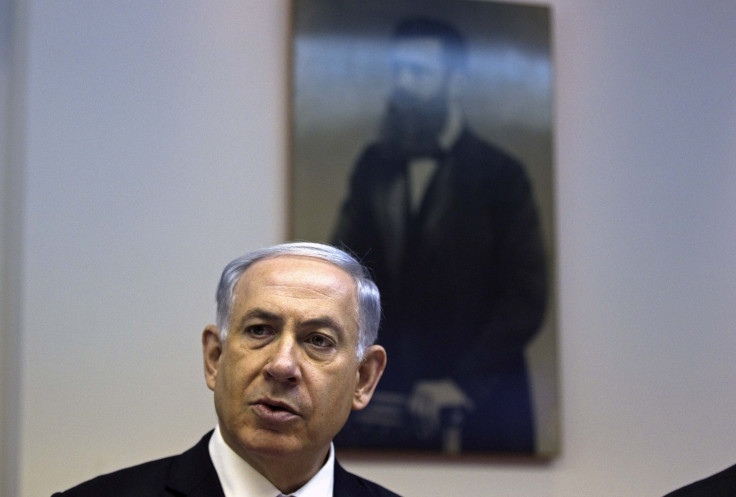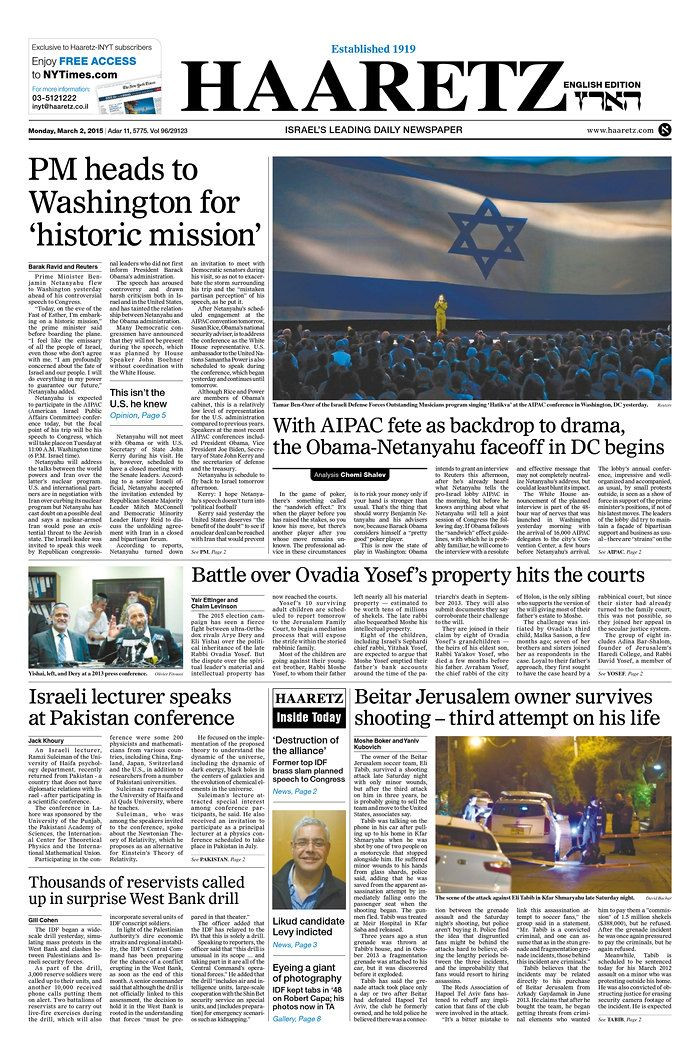Netanyahu Speech International Reaction: What Israeli, Arab, European Media Are Saying About The Controversial Address

While U.S. news outlets have devoted significant coverage to the controversy around Israeli Prime Minister Benjamin Netanyahu’s address to Congress this week, media reports on the speech around the world have varied. The leader arrived in the U.S. Monday, a day before he was set to address Congress to argue against a possible nuclear deal with Iran. The planned speech has sparked controversy in Washington, with the White House criticizing the speech as a breach of protocol in the latest evidence of tensions between President Barack Obama and the Israeli prime minister. An Obama official voiced the administration's strongest disapproval of the address last week, with National Security Advisor Susan Rice calling it “destructive” to the fabric of Israeli-U.S. relations.
The diplomatic tensions around the speech have been covered widely in Israel. The Israeli daily Haaretz featured the story on its front page Monday, with its headline highlighting the prime minister’s self-described “historic mission.” The outlet also ran an interview with Israeli Intelligence Minister Yuval Steinitz who said that without Netanyahu Iran would have gotten a much better deal or nuclear weapons.

The Jerusalem Post focused on U.S. Secretary of State John Kerry’s support for Israel and the United Nations Human Rights Council meeting in Geneva, where the diplomat defended the Jewish state against what he said were international attempts to isolate and delegitimize it. The outlet noted that Kerry’s defense should “lay to rest” speculation that Washington was planning to penalize Israel at the U.N. out of frustration about Netanyahu’s speech.
The major Arabic-language newspapers were largely silent about Netanyahu’s D.C. visit, focusing their coverage instead on Yemen and Egyptian-Saudi relations. Al Quds al Arabi led with former Yemeni President Abd Rabbuh Mansur Hadi’s allegations that Iran conspired to undermine Yemen’s power transfer deal. Both Al Sharq al Awsat and Al Ahram, the Egyptian daily read throughout the region, led with Egyptian President Abdel Fattah al-Sisi’s meeting with Saudi Arabia’s King Salman around a joint-Arab force to counter regional instability.
Iran’s Fars News Agency, on the other hand, prominently covered an anti-Netanyahu protest outside of the Convention Center in Washington, D.C., where Netanyahu was due to address a conference of the American Israel Public Affairs Committee lobbying group. Fars reported that five activists had been arrested at the demonstration, which aimed to shut down AIPAC’s three-day event.
In the United Kingdom, a report in the Guardian described Netanyahu’s arrival as heralding the “most strained moment in relations” between Israel and the U.S. since Obama came to power. The French daily Le Monde published a story that argued that the price of Netanyahu’s “historic mission” to protect Israel from Iran came at the price of an unprecedented deterioration in relations with the U.S., Israel’s greatest ally. However, many European dailies, including the prominent German tabloid Bild, Spain’s El Pais and Belgium’s De Standaard, chose to devote their front pages to Sunday’s rally in Moscow against Russian President Vladimir Putin following the murder of opposition leader Boris Nemtsov.
A commentary published in the Toronto Star criticized Netanyahu for choosing to electioneer rather than focus on much-needed diplomacy. “To prevent another Holocaust is an historic challenge. In addition to conventional security measures it requires subtle statesmanship, not bravado and electioneering,” the editorial said.
© Copyright IBTimes 2025. All rights reserved.






















